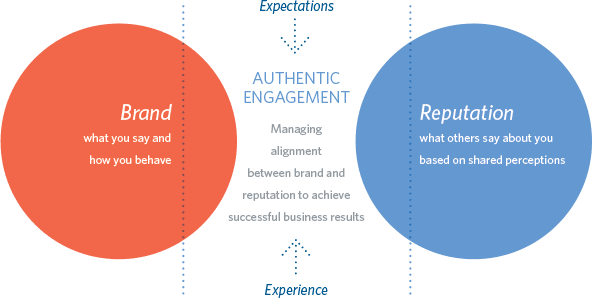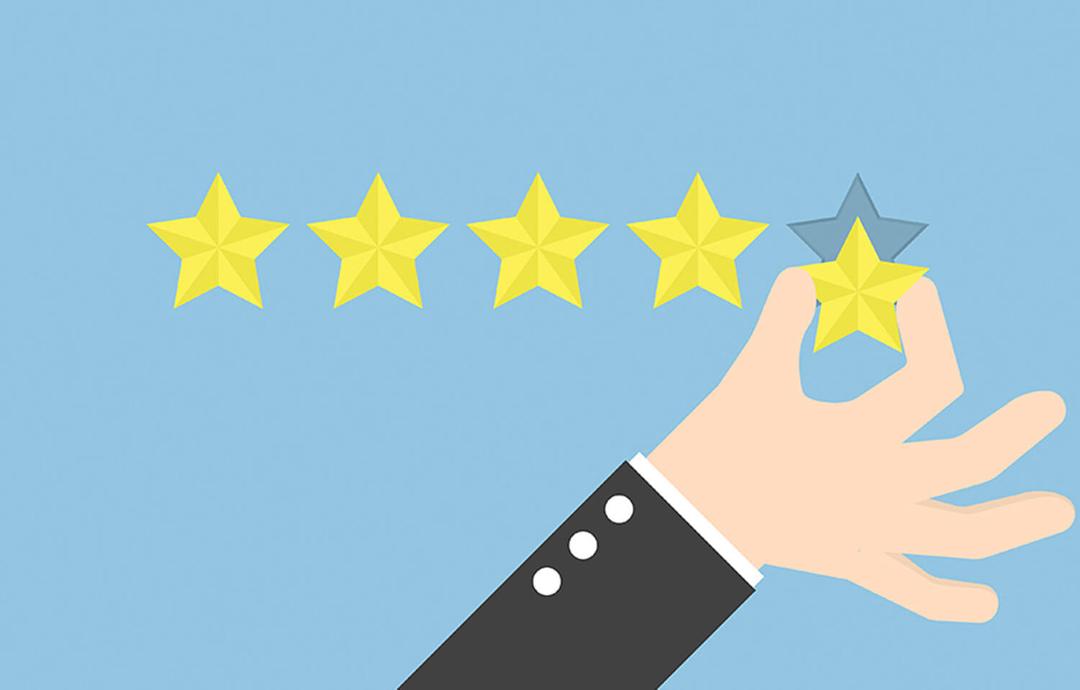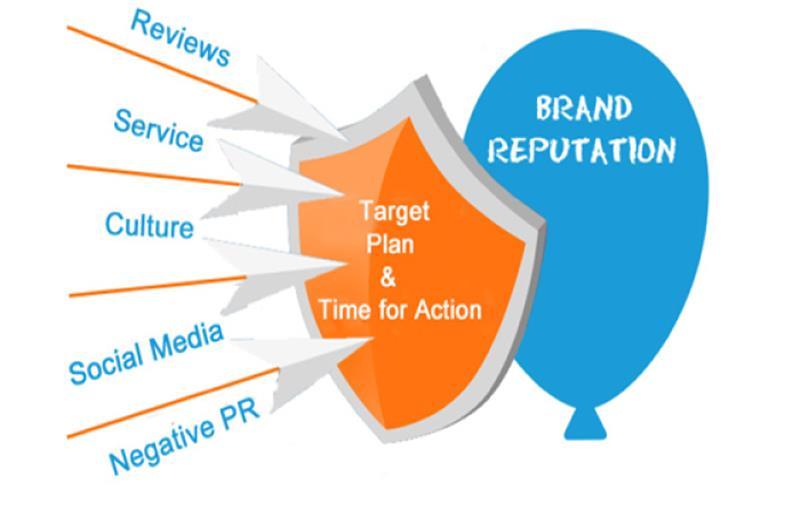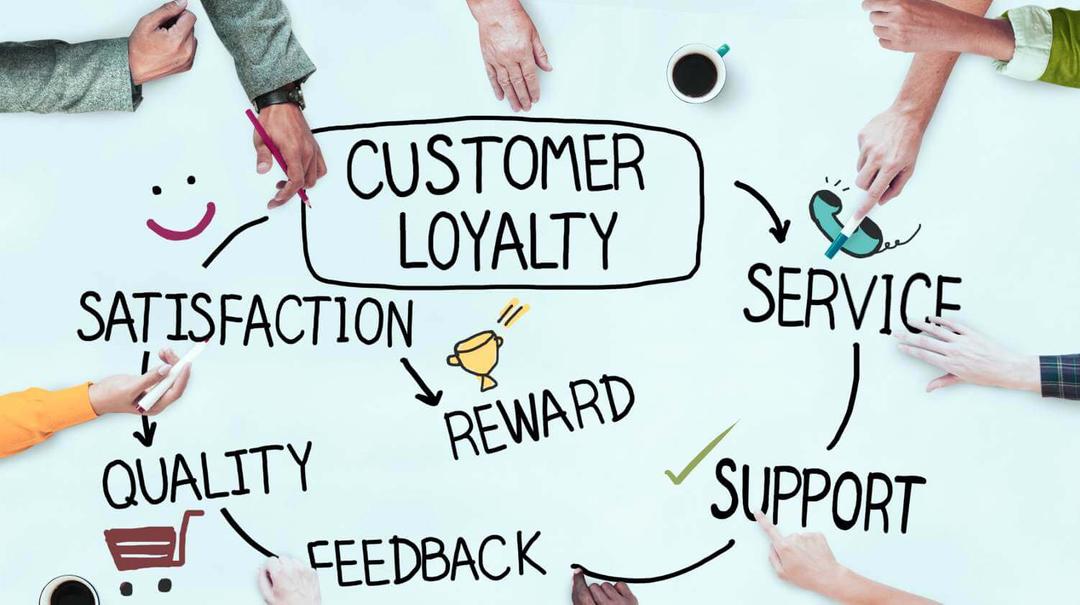What is brand reputation and how to build it

- What is brand reputation exactly?
- How to measure your brand reputation?
- Why is brand reputation important?
- Steady income
- New clients
- Successful experiments
- How to build a good brand reputation or increase it
- 1. Care about your customers
- 2. Analyze and optimize
- 3. Resolve conflicts effectively
- 4. Praise your customers
- 5. Keep your promises
- 6. Use modern tools
- The bottom line
Brand reputation is its image in the target market. It is usually defined by two important things. They are how big your audience is and what it says about you.
Today it's easier to enlarge your audience than it was 10 years ago. Earlier, a brand's reputation, whether it was a store, hair salon, or bar, was local. At their best, they were known all over their town. But we live in the digital age when you can reach people on the opposite side of the Earth using social media and the internet.
The bigger your audience is, the more testimonials and reviews you get. This can increase your brand reputation, but it can also ruin it in a minute. People don't need first-hand experience anymore to know whether your brand is good or bad. They can learn it from your social accounts, and the accounts of your clients.

Let's look at an example. You make craft soap and sell it on Amazon and Instagram. Feedback like "Wow, it has some really charming acai odor" naturally increases your brand reputation. But someone can also write they didn't like your soap at all. Unfortunately, it may even not be your product what disappointed them, but the delivery company or bad weather that day. But this still affects people's opinions.
Brand reputation management helps to deal with the opinions. All these help to keep your brand's image good.
Brand reputation math is quite simple, you can easily measure it. If it is good, you can see:
- Your revenue is increasing.
- Your sales are increasing.
- The ratio of likes/dislikes on social media is 7:3. Even better, if the first number is higher, and the second is lower.
- Feedback and testimonials on your brand are mostly positive. No matter where you receive it: in person, on Yelp, Google Play, Airbnb, etc.
These are basic brand reputation measurements. They allow you to quickly estimate whether you are on the right way.
Now, let's see what you can do to improve or enhance your brand reputation.
Brand reputation is important because it affects your business outcomes. To put it simply, if people like you, they want to deal with you. They buy your product and you earn money. If they don't like you, they don't want to deal with you. And if they don't buy your product, you get no money.
After all, a brand is all about making a profit. If it's important for you, you should care about your brand reputation. Whether you are a personal brand or a company, your good reputation increases your revenue. Let's look deeper to understand how exactly.

Brand reputation and customer loyalty depend on each other. Respect and trust that you gain with the loyalty guarantee have a positive opinion about you. Check out the guide on how to build customer loyalty.
Customer loyalty means people always come again to buy your product. There appears what psychologists call a comfort zone effect. It means if they are satisfied with your service and product, they won't want to risk their money by going to your rivals.
As you can see, a stable brand reputation guarantees a steady income. Most customers hate exploring the unknown.
You can invest thousands of dollars in a PR campaign. It will attract people and even pique some genuine interest. But if you fail to build a brand reputation during this short period, customers' interest in you will die out.
Imagine that your expensive and prospective campaign has succeeded. You've got a lot of prospects. They come to the point when they decide whether to buy or not. And your brand reputation will play its role here.
If your brand reputation is good, it has a positive effect on the prospects' decision, turning them into customers. If they know you do your job well, make a high-quality product and deliver it in time, they are likely to choose you.
What's more, satisfied customers share their positive experiences with friends, colleagues, and family. These will bring you even more new customers!
If your reputation is bad or you haven't gained any popularity at all, very few prospects buy your product. They don't want to risk or waste their money.

At some point, you may decide your brand needs changes. You may want to alter your product, launch another line, or even change your niche. There is always a risk that your customers may not like it or may not even want to try it. Your reputation defines the level of the risk.
A good brand reputation lowers the risk that experiments bring. Your customers trust you and believe that what you do is good. So they are more likely to try a new variation of your product. If you change your niche, those who have the minimum interest in the new one stay with you.
Your brand reputation softens the blow when your experiments fail. It is the credit that saves your clients. Even if your new product turns out to be lame, people still like you and remain with you. They give you a chance to redeem the failure with another innovation or just keep buying what's always been on offer.
Now let's look at some management strategies you can use to build your brand reputation or increase it.
It is important for your brand reputation to care about your customers. This management strategy is as simple as it sounds. The better your customers' experience is, the better your reputation is.
This is what you should do to increase your brand's reputation:
- Always reply to your customers and do it quickly;
- Resolve every case when your clients have a bad experience with your brand;
- Make shopping easy.
Such brand reputation management conquers clients' hearts and contributes to your company's thriving.

Business is never static. Your brand reputation management should change and evolve too. You need to analyze customers' experience, this will give you an understanding of how to make it better.
The most important thing here is to analyze bad customer experiences with your brand. Thus, you figure out your weak spots that require immediate management and can fix them.
Also, run surveys and newsletters, and always ask for feedback. This will help you to find new ways for improvement, even when everything goes smoothly.
There are always dissatisfied customers who are a bad influence on your brand's reputation. They write negative testimonials, rant, or spread rumors. You can't avoid it, but you can manage it.
Such conflicts may seem a nightmare for a brand, but in fact, they are a chance to improve its reputation. Use social media to provide customer service. Thus, you can resolve conflicts right, people see you are sensible and good to deal with.
Customers' complaints can be reasonable or not:
- In the first case, you should admit your fault, do what you should have done right this time, and offer a reimbursement.
- In the second case, when you are sure the product and service you provided were fairly good, explain your perspective to the customer, providing reasonable facts. Thus, you will save your brand reputation, or even increase it.
Here are general tips for resolving conflicts to save your brand reputation:
- Respond to your customers as quickly as possible. Put out the fire of dissatisfaction before it starts out and scares potential buyers away.
- Always be polite and friendly when talking to your clients. That is what shows you respect your clients, and do want to resolve a conflict and come to an agreement.
- Dare to deal with angry customers on social media. It can increase your brand reputation since a lot of people see you are polite and ready to compromise.
If people are satisfied with your product and service, they will tell others good things about you. This is free advertising that increases your brand reputation. How actively people advertise your brand depends on you. Sure, you should work on your product quality, but there is more to it.
Make your loyal customers feel unique. Provide loyalty programs and campaigns with rewards encouraging people to tell others about you. Also, show how you appreciate them on your social profiles. You can even tag the customers or repost their publications.
Praising the customers and their loyalty, you strengthen the connection with them. They will spread the good word about you, which naturally increases your brand reputation. One day they may even start protecting you from unfair accusations in the comments on social media.

A brand's reputation is as good as its ability to keep promises. You should give your clients exactly what you say in your ads, offers, and when discussing the order.
Give your clients exactly what they expect to build a good brand reputation. Do not violate deadlines. Do not charge extra money. Be honest and stick to your words. It may sound obvious, but when it comes to practice, many brands fail to do this.
You know already that building and increasing your brand reputation requires high-quality service and providing easy shopping. Especially on social networks where people don't always understand clearly how to place an order.
A link in bio page is what you need to make shopping easy and increase your brand reputation. There, you can place all the necessary information, links, clickable locations, book, buy, and contact buttons. Users will easily learn everything they need about you and place an order.
Look at the example of the link in an Instagram bio and the page that it leads to. Follow the link to get the page template after a quick sign-up, which will allow you to create a similar page in less than 10 minutes.


Here you can find stunning link in bio page examples for your inspiration.
Create a page for your brand and add a link to it in your bio on social networks. You can also use it in posts, Stories, and advertising.
A link in bio page can be created on Taplink. You can start right now, or read a guide first.
Your brand's reputation is its image in the target market. Excellent reputation is as important as the top-notch product you intend to sell. It affects your revenue, which is what it's all about.
Follow the management tips in the article to build your brand reputation and increase it. You should sincerely care about your clients, and stay up-to-date with social media tools.